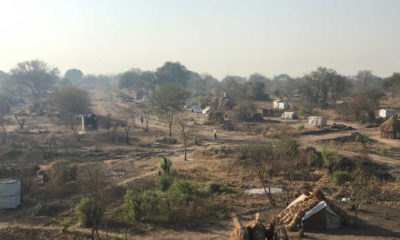News
World Bank report identifies opportunities to spur faster economic growth in Uganda

Amena Arif, IFC Country Manager for Uganda during the launch of Uganda Country Private Sector Diagnostic (CPSD) at Kampala Serena Hotel on Feb. 17, 2022
A report published recently – Feb.17,2022 – by the World Bank and it’s private lending arm – International Finance Corporation (IFC), found that Uganda could grow its economy, create jobs, and strengthen its trade position in East Africa faster by increasing private sector investment in its agribusiness, energy, and housing sectors, and by advancing business climate reforms.
The Country Private Sector Diagnostic (CPSD), jointly produced by IFC and the World Bank, applauds Uganda for its progress in liberalising parts of its economy and examines areas where increased private sector investment, expertise, and reform could further support growth.
The report found that the energy, housing, and agribusiness (namely fisheries, dairy, and maize) sectors are among those that offer strong potential to address job creation and competitiveness challenges amid high population growth and urbanisation.
However, to realise growth in these sectors, Uganda will need to continue advancing reforms and attracting private investment.
“IFC’s goal is to help strengthen Uganda’s competitiveness, economy, and job creation by supporting increased private sector investment in key growth areas. Uganda has immense potential for progress and IFC is a committed partner helping the country realise its long-term development objectives,” said Amena Arif, IFC Country Manager for Uganda.
“A competitive and dynamic private sector is essential for Uganda to create sufficient jobs for a young and rapidly growing labour force. We will leverage the World Bank Group’s comparative advantage to bolster the country’s private sector and implement meaningful reforms,” said Mukami Kariuki, World Bank Country Manager for Uganda.
Over the last two decades, Uganda has had a good track record implementing pro-private sector policies that have led to significant inward investment, high levels of regional trade, and a vibrant informal economy. However, the country’s growth rates have recently slowed and there are signs of the government’s pro-private sector agenda losing some ground.
The shock of COVID-19 has contributed to economic headwinds impacting Uganda, reversing some recent gains, and sending an estimated 2.6 million Ugandans back into poverty in the short-term.
Other challenges slowing growth in Uganda relate to infrastructure, human capital, institutional capacity, and the land system. The Uganda CPSD found that constraints in these areas limit private sector investment, especially in housing.
Housing construction is especially important for post-COVID-19 economic and social recovery because of its ability to create jobs. In energy, the availability of reliable electricity both from a production and distribution perspective, will contribute to the country’s competitiveness and presents investment opportunities for the private sector, such as in renewable energy.
The CPSD therefore comes at a crucial time for Uganda, which is working to recover from COVID-19 and fully re-open its economy.
The World Bank Group’s CPSDs provide in-depth economic analyses that identify opportunities to unlock private sector investment and create opportunities for more people.
The World Bank Group will channel its private sector development lending, investment, and advisory operations in Uganda to target the sectors and reforms highlighted in the CPSD—and help the Government of Uganda prioritise the actions the report recommends.
Comments


























